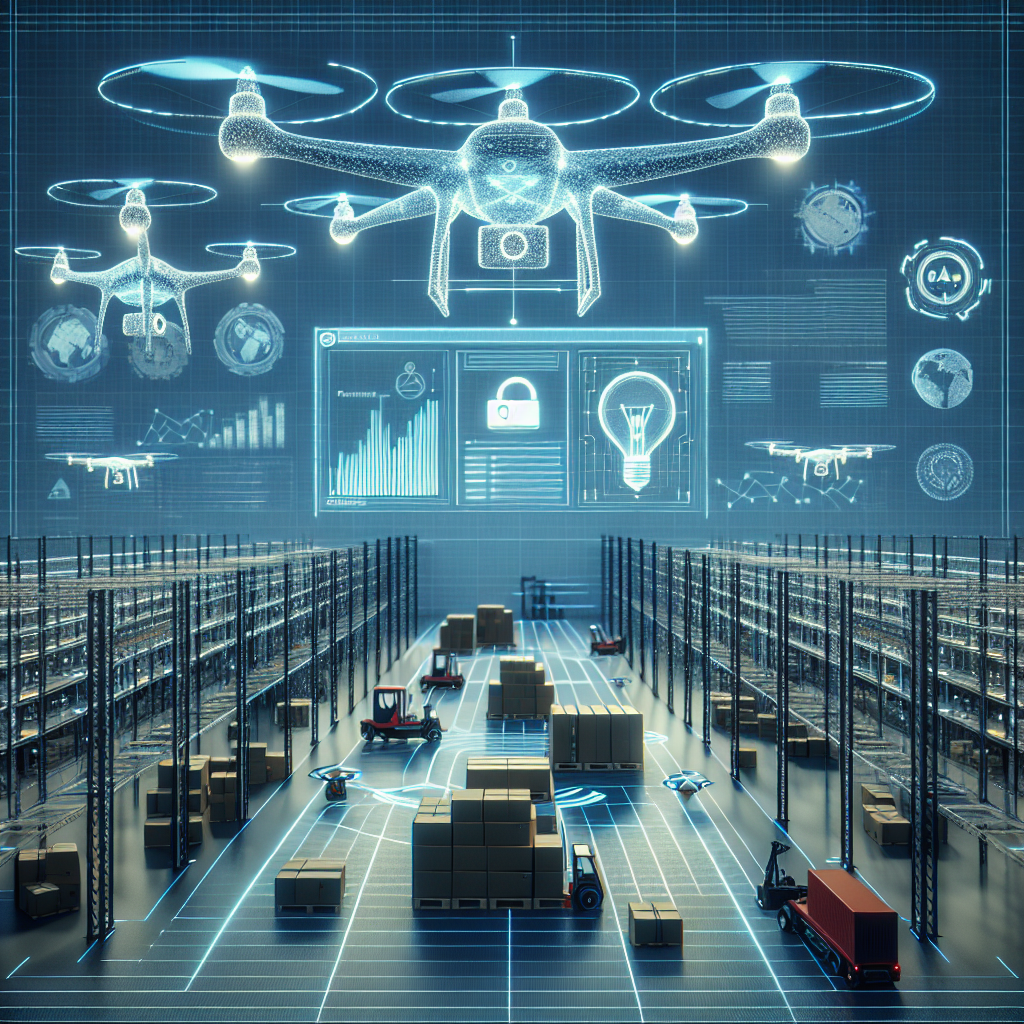In recent years, the logistics industry has seen significant advancements in technology, particularly in the area of artificial intelligence (AI). One of the most prominent applications of AI in logistics is in smart warehousing, where AI-powered systems are revolutionizing the way warehouses operate and improving overall efficiency.
Smart warehousing refers to the use of AI and other advanced technologies to automate and optimize warehouse operations. These systems can help warehouses better manage inventory, streamline order fulfillment processes, and improve overall operational efficiency. By leveraging AI, warehouses can reduce costs, increase productivity, and enhance customer satisfaction.
AI-powered smart warehousing systems use a combination of technologies such as machine learning, robotics, and data analytics to optimize operations. These systems can automate tasks such as inventory management, order picking, and packing, making the entire process more efficient and accurate. With real-time data analysis and predictive analytics, warehouses can anticipate demand, optimize inventory levels, and make more informed decisions to improve overall performance.
One of the key benefits of AI-powered smart warehousing is the ability to increase operational efficiency. By automating repetitive tasks and optimizing processes, warehouses can reduce labor costs and improve productivity. AI-powered systems can also help warehouses better utilize space, optimize inventory levels, and reduce errors in order fulfillment. Overall, this leads to faster order processing, improved customer satisfaction, and reduced operational costs.
Another major advantage of AI-powered smart warehousing is the ability to improve inventory management. By using AI algorithms to analyze historical data and predict future demand, warehouses can optimize inventory levels and reduce stockouts. This not only improves customer satisfaction by ensuring products are always available, but also helps warehouses reduce carrying costs and minimize excess inventory.
Furthermore, AI-powered smart warehousing systems can enhance safety and security in warehouses. By using AI-powered surveillance systems and robotics, warehouses can monitor activities in real-time and detect potential safety hazards or security breaches. This can help prevent accidents, theft, and other security incidents, ultimately creating a safer work environment for warehouse employees.
Overall, AI-powered smart warehousing is transforming the logistics industry by improving operational efficiency, inventory management, and safety. By leveraging AI technologies, warehouses can streamline processes, reduce costs, and enhance customer satisfaction. As the technology continues to evolve, we can expect to see even greater advancements in smart warehousing that will further revolutionize the way warehouses operate.
FAQs:
Q: What is AI-powered smart warehousing?
A: AI-powered smart warehousing refers to the use of artificial intelligence and other advanced technologies to automate and optimize warehouse operations. These systems use AI algorithms, machine learning, robotics, and data analytics to improve efficiency, accuracy, and overall performance in warehouses.
Q: How does AI improve warehouse operations?
A: AI can improve warehouse operations by automating tasks, optimizing processes, and providing real-time data analysis. AI-powered systems can help warehouses better manage inventory, streamline order fulfillment processes, and make more informed decisions to improve overall efficiency.
Q: What are the benefits of AI-powered smart warehousing?
A: Some of the key benefits of AI-powered smart warehousing include increased operational efficiency, improved inventory management, enhanced safety and security, and reduced costs. These systems can help warehouses optimize processes, reduce errors, and enhance customer satisfaction.
Q: How can AI help with inventory management in warehouses?
A: AI can help warehouses improve inventory management by analyzing historical data, predicting future demand, and optimizing inventory levels. By using AI algorithms, warehouses can reduce stockouts, minimize excess inventory, and ensure products are always available to meet customer demand.
Q: What are some examples of AI-powered technologies in smart warehousing?
A: Some examples of AI-powered technologies in smart warehousing include robotic automation systems, predictive analytics software, machine learning algorithms, and real-time data analysis tools. These technologies work together to automate tasks, optimize processes, and improve overall efficiency in warehouses.

